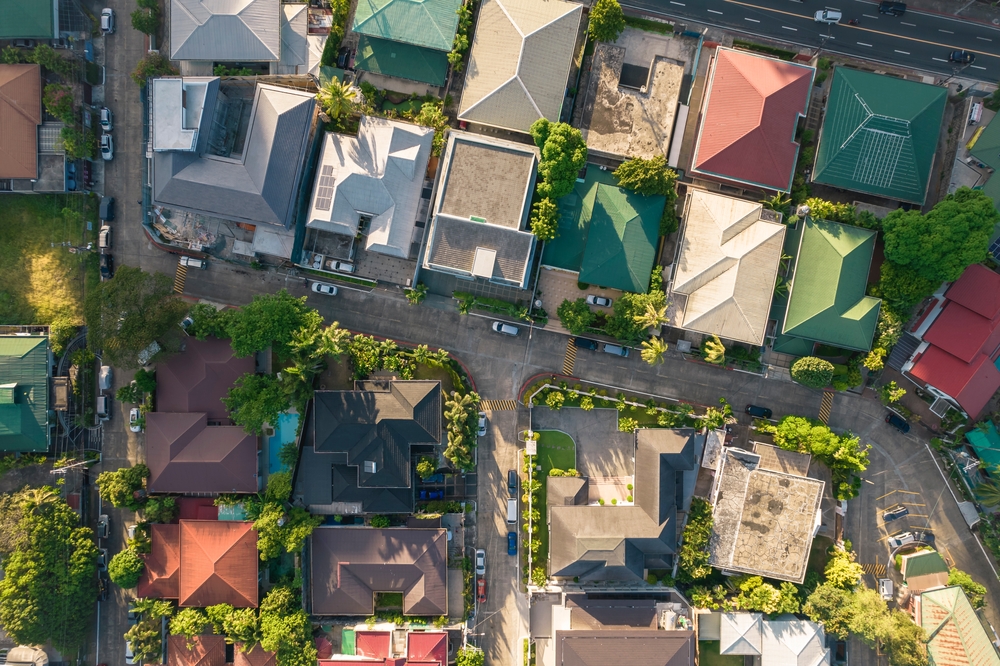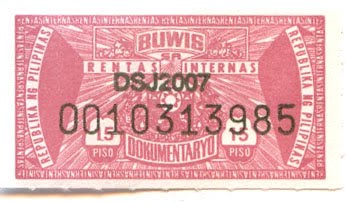Being a property owner entails many responsibilities, specifically the legal aspect. You must consider property taxes, real estate devaluation, mortgages, land deeds, safety standards, etc.You must also be aware of your rights should you lease your property to residential and commercial tenants, ensuring it binds to your name legally. Plus, it’s your responsibility to take care of your property’s infrastructure.Whether you plan to become a landlord or a homeowner, you should learn about relevant real estate laws to avoid legal complications. In this blog, we’ll discuss the different Philippine real estate laws and taxes that may apply to you.
Philippine Real Estate Laws You Need to Know
If you’re a first-time real estate investor, it’s best to familiarize yourself with real estate laws in the Philippines. You could use your knowledge to confirm your rights and obligations—should the need arise—and make informed decisions. Below are the essential real estate laws that you should know.
1. Maceda Law
Also known as The Realty Installment Buyer Act or Republic Act 6552, the Maceda Law protects real estate buyers on installment payments against unfavorable conditions. It specifies when and how much they should pay their developer. This law applies only to residential property transactions like houses, lots, and condominiums.
This law entitles buyers to two rights if they can’t pay for their property anymore.
First, they can pay unpaid installments without additional interest within a specific grace period. The property developer can cancel the contract if the buyer fails to pay the remaining installments after the grace period expires.
Second, buyers can get a refund from a canceled contract if they have paid a certain amount of the property’s total price.
2. Subdivision and Condominium Buyers’ Protective Decree
Some developers use misleading ads like “no down payment” to attract buyers into purchasing their properties. Fortunately, property buyers in the Philippines have the Subdivision and Condominium Buyers’ Protective Decree, also known as Presidential Decree No. 957.
This law informs buyers about their legal rights and provides the vital information they should know when buying a property, such as property size, available facilities, and total payments. It also protects buyers from negligent developers in every stage of the property purchase—from the point of sale to unit turnover.
Buyers have the right to file a complaint against fraudulent developers if they can prove the seller’s negative business reputation and illegal transactions and business practices.
3. Condominium Act
The Condominium Act or Republic Act No. 4726 covers condominium rules and regulations in the Philippines. Essentially, it regulates condo ownership and management. It also informs condo owners about their rights—renovating, selling, or leasing their units and using their building’s common areas—to avoid falling for fraudulent developers.
Moreover, the act enables condo owners to participate and vote in condominium corporation meetings, like the election of the board of directors or changes to the building’s rules and regulations. Overall, it ensures fair treatment for condo owners and allows them to enjoy their units.
4. Rent Control Act of 2005
Originally the Rental Reform Act of 2002, the Rent Control Act of 2005 protects housing tenants in the lower income brackets from unreasonable rent increases. It covers properties in Metro Manila and other urbanized cities with monthly rents up to PHP 10,000, as well as all residential units in other locations with rent prices up to PHP 5,000.
The law permits only a 10% yearly rate increase for any rental unit. It also allows condo owners to set a new rate once a tenant vacates a unit. The act also covers down payments and advance rent, tenant removals or ejectment, rent-to-own schemes, and penalties.
5. Investors’ Lease Act
The Philippine government welcomes any foreign investment to grow and sustain the local economy, generate jobs, improve the quality of living, and more. As such, it extends its welcome to real estate investments, where the Investors’ Lease Act or Republic Act 7652 is handy.
This law allows foreign investors to lease private land for 50 years, which they can renew only once for another 25 years. It also states that foreign investors must only use their leased land for investment purposes.
Moreover, it permits foreign corporations with more than 40% foreign equity to enter a lease agreement with Filipino landowners for an initial period of up to 50 years.
6. Real Property Tax
The Real Property Tax code, formally known as Presidential Decree No. 464, oversees how the government assesses, collects, and uses real property taxes. Real property taxes differ from property sales. The former is a long-term obligation, while the latter is a one-time transaction involving the transfer of property ownership from the seller to the buyer.
The Real Property Tax law requires real property owners to pay taxes based on their property’s assessed value. The estimated value may depend on factors such as current and fair market value, uniformity across all locations, and the real estate’s intended purpose.
Other areas this code covers include tax exemptions, transfers of real property ownership, assessment appeals, and special levies on real property.
Taxes on Real Estate Sales in the Philippines
As a first-time homebuyer, it’s essential to know that purchasing or selling real estate in the Philippines is not that simple. Aside from the value of the property you plan to own or sell, you must also pay some taxes involved in the sale. Here are the taxes on a real estate sale in the Philippines you may encounter.
1. Capital gains tax
Capital gains tax applies to real estate sellers upon selling or exchanging property. To calculate this type of tax, check the property’s value or its current fair market value and multiply it by 6%. For instance, if your property’s value is PHP 1.5 million, you must pay a capital gains tax of PHP 90,000.
According to the Bureau of Internal Revenue, real estate sellers must file and pay their Capital Gains Tax Return (BIR Form No. 1706) within 30 days after the property sale. They must also approach the appropriate agencies for this tax: an Authorized Agent Bank (AAB) or Revenue Collection Officer (RCO) of the Revenue District Office (RDO) where the sale took place.
2. Value-added or percentage tax
In the Philippines, real estate sellers must pay a 12% value-added tax when they sell a property. However, under the Tax Reform for Acceleration and Inclusion (TRAIN) law, you can exempt yourself from this tax if you meet any of the following conditions:
- You own residential properties, like a house and lot
- You used your property for socialized housing
- You sold your property for less than PHP 3,199,200
3. Creditable withholding tax
Creditable withholding tax (CWT) is a percentage of the total purchase price of a property that a buyer withholds and remits to the government. In other words, the property seller can use the withheld tax from a sale to pay their income taxes in advance.
The buyer only needs to provide the seller with BIR Form No. 2307 or Certificate of Creditable Taxes Withheld to process the offset.
The CWT amount varies depending on the transaction value and the property type for sale. It’s usually between 1.5% and 6%. Nonetheless, the buyer must withhold a CWT based on the higher of two factors:
- The property’s gross selling price or the total amount of consideration
- The property’s current fair market value
However, if the sold property is a capital asset, the tax will fall under the classification of capital gains tax instead of CWT, as the latter only applies to ordinary assets.
4. Documentary stamp tax
Source
Documentary stamp tax covers documents, instruments, loan agreements, and papers proving the acceptance, assignment, sale, or transfer of a property. Other taxable documents in a real estate sale include the following:
- Deed of sale
- Bank checks
- Debt instrument
- Original issuance of stocks
- Birth certificate
- Power of attorney
- DTI business name certificate
- Lotto
- Leases
- Other hiring agreements
According to Section 199 of the Tax Code, documents and instruments that are exempt from the documentary stamp tax include the following:
- Insurance policies
- Certificates of oaths
- Borrowing and lending of securities
- Loan agreements
- Sale, barter, or exchange of shares of stocks
- Assignment or transfer of any mortgage, lease, or insurance policy
5. Transfer tax
Transfer tax is for transferring property ownership through a sale, donation, barter, or another method. It’s usually up to 0.50% of the property’s fair market value, zonal value, or total selling price, whichever is higher. However, the transfer tax percentage differs per location. The typical transfer tax rate in Metro Manila is 0.75%.
For example, if you’re purchasing a property in Metro Manila for PHP 1.5 million, you must pay a transfer tax of approximately PHP 12,000. Payment of this tax ensures you can register a deed or get a new title under your name and receive a new tax declaration.
Invest in a Condo the Right Way
Whether you’re buying or selling properties, brushing up on your real estate law knowledge is essential to ensure a smooth homeownership journey. Use the guide above to prepare for your real estate journey, including what to know before buying a condo, house and lot, and other properties.
If you’re looking for your first condo, let Mandani Bay be your primary choice with its luxurious condo living and exceptional lifestyle. Visit our website for high-end condos for sale in Cebu!





